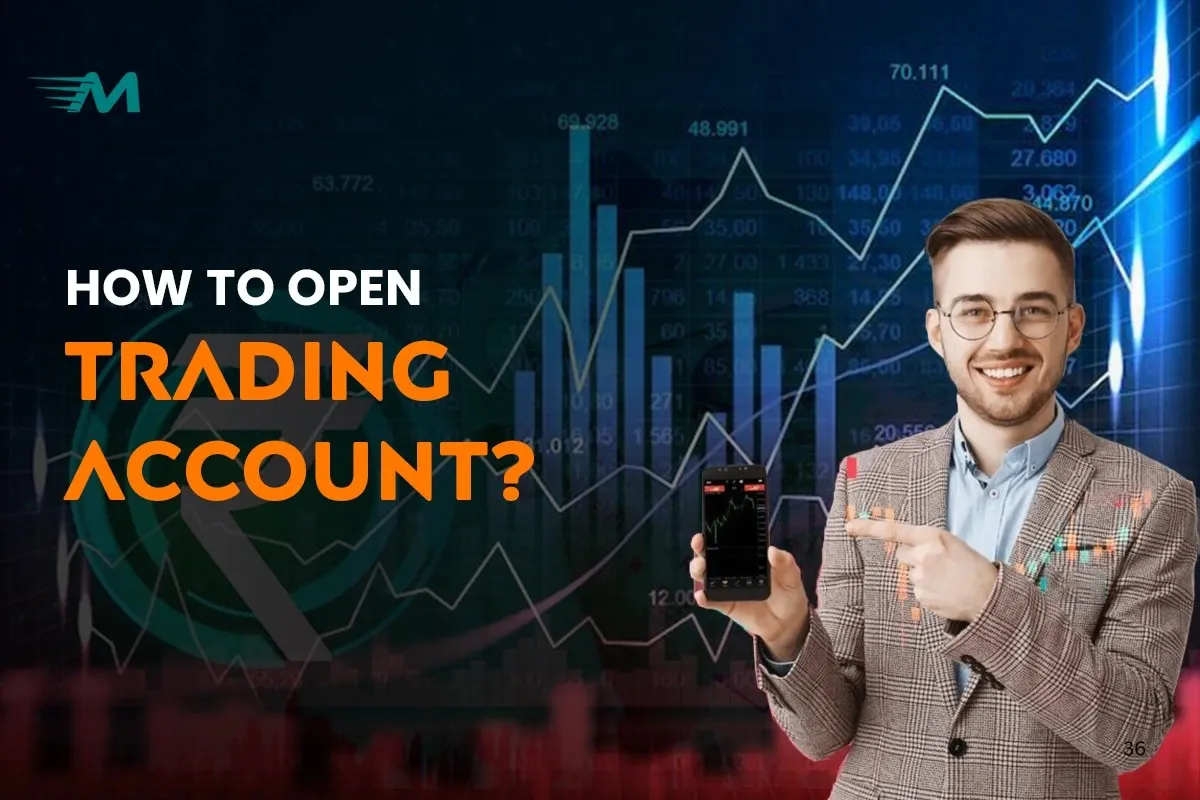How to Open a Trading Account in India 2025: Step-by-Step Guide for Beginners
Investing in the stock market is no longer just for financial experts — anyone with a smartphone and valid ID proof can begin their journey today. Whether you’re looking to grow wealth, achieve financial independence, or build a passive income source, opening a trading account is your first step.
In this in-depth guide, you’ll learn what a trading account is, how to open one step-by-step, the documents required, the best brokers like Upstox, and some smart tips for beginners. Let’s get started.
Table of Contents
What is a Trading Account?
A trading account is an account used to buy or sell securities (like stocks, bonds, ETFs, etc.) on the stock exchange. It acts as a gateway between your Demat account (which holds your shares electronically) and your bank account (where your money resides).
You can’t trade in the Indian stock market without a trading account.
Difference Between Trading and Demat Account
| Feature | Trading Account | Demat Account |
|---|---|---|
| Purpose | Buy/Sell securities | Store securities electronically |
| Linked with | Bank & Demat account | Trading account |
| Usage | Place orders on NSE/BSE | Hold purchased stocks |
| Charges | Brokerage charges | Maintenance & DP charges |
Types of Trading Accounts in India
There are different trading accounts depending on your trading needs:
- Equity Trading Account – For trading shares and equity derivatives.
- Commodity Trading Account – For commodities like gold, oil, etc.
- Currency Trading Account – For trading in forex pairs.
- Futures & Options Account – For derivatives trading.
- Intraday vs Delivery Trading Account – Intraday for same-day trades; Delivery for long-term holding.
Benefits of Having a Trading Account
- Easy access to Indian stock exchanges (NSE, BSE)
- Real-time tracking of market movements
- Flexibility to invest from mobile/laptop
- Access to IPOs, mutual funds, and ETFs
- Ability to automate or schedule trades
Documents Required to Open a Trading Account
Here’s a checklist of documents required for online account opening:
- PAN Card (mandatory)
- Aadhaar Card (linked with your mobile number)
- Bank proof – Cancelled cheque or bank statement (with IFSC, MICR)
- Signature on blank white paper
- Passport-size photo
Make sure all documents are clear and match your registered details.
How to Open a Trading Account Online: Step-by-Step Process
Let’s take Upstox as an example — one of India’s leading discount brokers.
Step 1: Visit the Broker’s Website
- Go to Upstox.com
- Click on “Open Demat Account” or “Start Investing”
Step 2: Enter Basic Details
- Fill in your name, email, mobile number, PAN
- Verify using OTP sent to your mobile
Step 3: Complete KYC
- Validate your PAN and Aadhaar
- Upload documents
- Do a video KYC (you’ll record a short video holding your PAN card and repeating a code)
Step 4: Link Bank Account
- Enter account number and IFSC
- Upload cancelled cheque or statement
- This allows for seamless fund transfer
Step 5: Review & Submit
- Cross-check all info
- Submit your application
Step 6: Verification & Activation
- Within 24 to 48 hours, you’ll receive a welcome email with login credentials
And that’s it — you’re ready to trade!
Top Brokers in India for Trading Account (2025 List)
Here’s a quick comparison of top brokers:
| Broker | Account Opening Charges | Brokerage Fees | Key Features |
|---|---|---|---|
| Upstox | ₹0 | ₹20 per order | Fast onboarding, user-friendly app |
| Zerodha | ₹200 | ₹20 per order | Industry leader, Kite platform |
| Angel One | ₹0 | ₹20 per order | Full-service + discount hybrid model |
| Groww | ₹0 | ₹20 per order | Great UI, ideal for beginners |
| ICICI Direct | ₹0–₹500 | Higher charges | Trusted bank-based broker |
Use Demo or Free Trading Accounts
Most platforms offer a demo account or paper trading feature. It lets you:
- Try trading with virtual money
- Learn to place orders risk-free
- Understand the interface before going live
Use this to your advantage as a beginner.
Investor Safety: How to Choose a Reliable Broker
Before opening your account, ensure:
- Broker is SEBI registered
- Platform uses SSL encryption for website security
- There are no hidden fees or misuse of funds
- You read client reviews and complaints on Google & Play Store.
Common Terms You Should Know
| Term | Meaning |
|---|---|
| DP Charges | Charges to maintain Demat holdings |
| Intraday Trading | Buy & sell stocks on the same day |
| Delivery Trading | Holding stocks beyond one day |
| P&L Statement | Profit & Loss Statement from the broker |
| Limit Order | Buy/sell at a specific price |
| Market Order | Buy/sell immediately at market price |
Trading Account Charges You Should Check
- Account opening fee (₹0–₹500)
- Annual maintenance charge (AMC)
- Brokerage per order
- Demat transaction charges
- Margin and fund transfer charges
Ask your broker for a detailed charges list before signing up.
Best Practices Before and After Opening a Trading Account
✅ Do:
- Use Aadhaar-linked mobile for eKYC
- Keep documents clear and ready
- Test demo before real trading
- Stay updated on SEBI rules and regulations
- Subscribe to broker newsletters or app alerts
❌ Don’t:
- Share OTPs or login with third-party agents
- Ignore hidden charges
- Trade without understanding market basics
- Fall for high-return promises from unregistered advisors
Taxation on Stock Market Income in India
| Type of Gain | Holding Period | Tax Rate |
|---|---|---|
| Short-Term (STCG) | < 1 year | 15% |
| Long-Term (LTCG) | > 1 year | 10% (above ₹1 lakh/year) |
Note: Use Form 26AS, broker P&L, and AIS from Income Tax Portal to file returns properly.
Conclusion
Opening a trading account is the gateway to wealth-building through the stock market. With platforms like Upstox, Zerodha, and Angel One, you can now open your account entirely online in just a few minutes. Remember to do your research, choose a SEBI-registered broker, complete your KYC carefully, and explore demo options before committing funds.
Whether you’re investing ₹500 or ₹5 lakh, the right start sets the tone for your long-term investing journey.
FAQs – Frequently Asked Questions
Q1: Is PAN card mandatory to open a trading account?
Yes, it is mandatory as per SEBI norms.
Q2: Can I open multiple trading accounts?
Yes, with different brokers — no legal restriction.
Q3: How long does it take to activate my trading account?
Usually within 24–48 hours after KYC.
Q4: Can I start with ₹500?
Yes, even small amounts can be invested — start with safe options like ETFs.
Q5: Are there any risks involved?
Yes — market risk, but also risks of fraud if you choose an unregistered broker. Always be cautious.
Disclaimer: The information provided in this article is for educational purposes only and should not be considered as financial advice. Always do your own research or consult a SEBI-registered financial advisor before making any investment decisions. The process and platforms mentioned, including Upstox, are examples and not endorsements.



